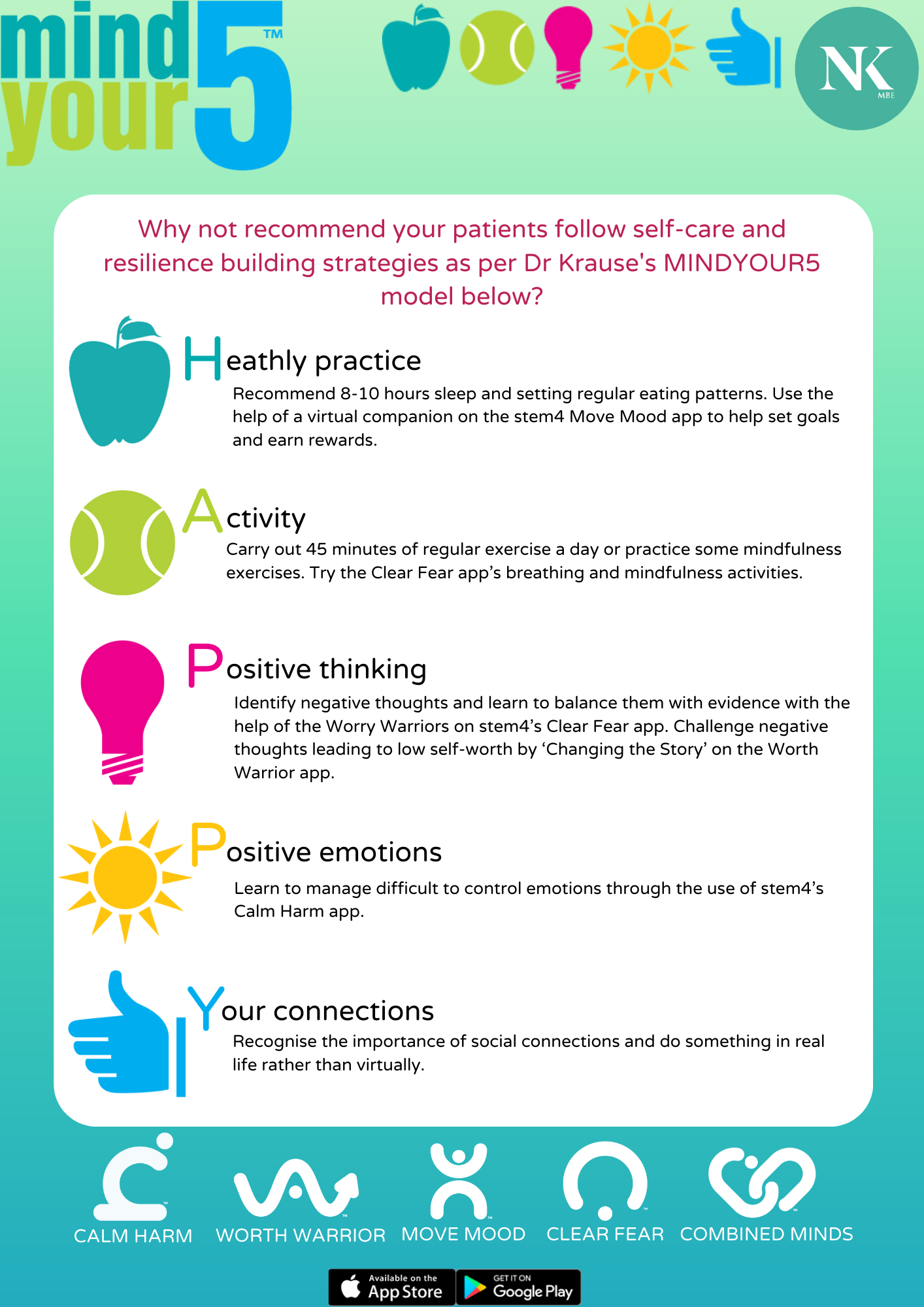Anxiety
For health professionals
What is anxiety?
Anxiety is a serious problem for teenagers. Common features of anxiety include tension, worry, frustration, irritability, sadness and withdrawal.
Young people do not often express their anxiety in a straightforward way and can show they are affected through passive or negative behaviours.

About anxiety
Anxiety is the most common presentation in children and young people and can present in a variety of different ways including fears and phobias, Obsessive-Compulsive Disorders, self-harm, post-traumatic stress, panic disorder.
All children and teenagers experience anxiety as part of their normal development and there are appropriate fears to feel at different developmental stages – e.g. a fear of the dark at three years old. Anxiety becomes a problem when it goes on for a long time and prevents the young person from enjoying their life. This is when anxiety can lapse into depression. About 25% 8-year-olds and 21.7% 17-year-olds report with anxiety. It is more common in girls than in boys.
Four signs of anxiety
Four steps to bringing about change
Visit our Further Advice page for details of other organisations that can help.


